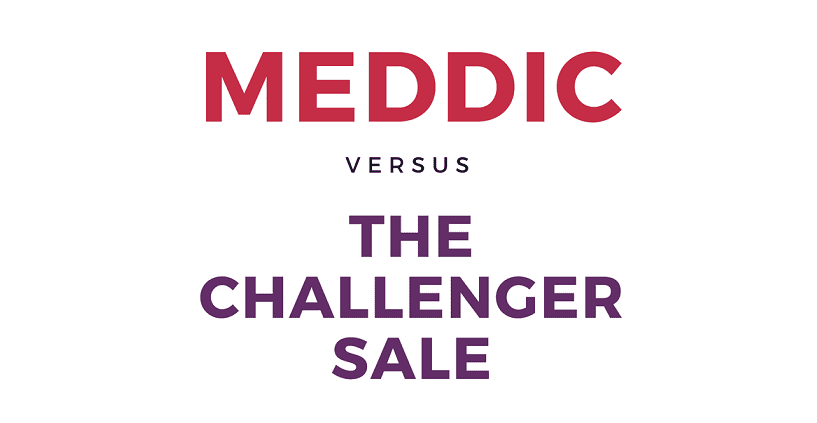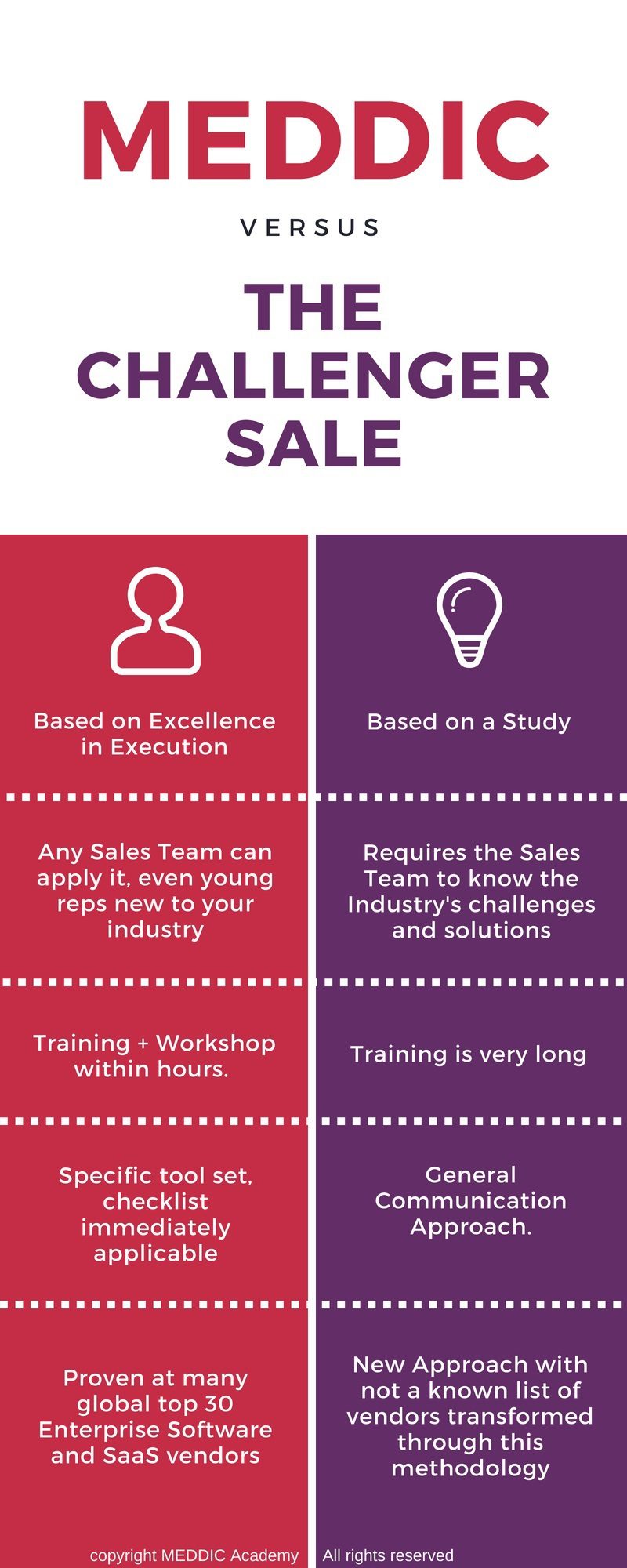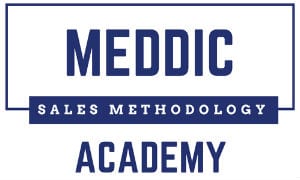The Challenger Sale vs. MEDDIC Sales Methodology
In the past few months, in each and every single MEDDIC Sales workshop I facilitated, someone brought up the comparison between the Challenger Sales and MEDDIC. In most cases my audience had only heard about the Challenger Sales as a “concept” and not as a sales methodology. Despite that, I thought sharing my viewpoint here and asking for your opinion would help analyze the positioning of the two Sales approaches.
How does MEDDIC compare to The Challenger Sale?
In fact they are so different that comparing MEDDIC to the Challenger Sale is like comparing Apples to Oranges. One is more of a checklist/toolsets along with a methodology to increase sales and shorten sales cycle through better qualification. While the other is a concept and idea in the communication style helping in being more convincing, respected and trusted in a sales campaign. The two don’t compete with each other; they complement each other and are omnipresent in each other.
Is The Challenger Sale a “Methodology”?
The Challenger Sale is a brilliant concept. In this related article I have written about things I like about it and the challenges of implementing it in a Sales Force. As I mentioned there, I am a firm believer in the Challenger Sale approach; successful sellers take control of the sales process, influence the client’s decision criteria, and lead the conversation. I am yet to be convinced in the efficiency of the Challenger Sale as a “sales methodology”. One that you would want to implement in an existing sales force to sell to Enterprise clients. The Challenger Sale started from a study, theoretical reflections, and academics trying to get into execution.
MEDDIC is all about EXECUTION!
MEDDIC Sales is almost the contrary. Instead of starting with a reflection on a concept resulting from a study, MEDDIC derives from execution and best practices by doers. MEDDIC, as a course delivered to the newly hired sales reps at PTC, articulated and documented the best sales practices in the field. Those practices assured 40 quarters of consecutive growth for PTC in a very conservative, competitive, and closed market (CAD/PLM) dominated by strong, profitable, established vendors. It got into academics only after being a successful and proven methodology in the field.
In the Challenger Sale approach, the seller should understand and master the industry’s problems. If he/she fails to master the industry’s challenges, how can he/she play the role of a teacher? Such a seller needs either a few years of training or needs to be hired as a senior seller already in the industry. MEDDIC sales methodology can be taught to any seller with no industry experience.
MEDDIC is very practical and easy to learn and apply. At MEDDIC Academy, training lasts about 2 hours (both via e-learning and in-person). In-person workshops typically last 2 hours as well. TCS trainings last several days. It may take months or even years for a seller to run a sales campaign with TCS successfully.
MEDDIC learning is company/product-agnostic!
When the seller switches jobs and moves into a new industry, the MEDDIC knowledge and skills follow him/her. TCS is not the same since he/she needs to learn the specifics of the new industry before becoming credible when discussing the new industry’s issues.
Finally, although TCS is not new, few known vendors can testify to a successful implementation with results. MEDDIC Sales has been used by many Software and SaaS vendors for decades. SAP, Oracle, Sales Force, PTC, BMC Software, and EMC are a few of them.
If you know both methodologies, please let us know what differences you have observed.
And did you like what you just read? Feel free to share it (see share buttons right below).



Comments are closed.